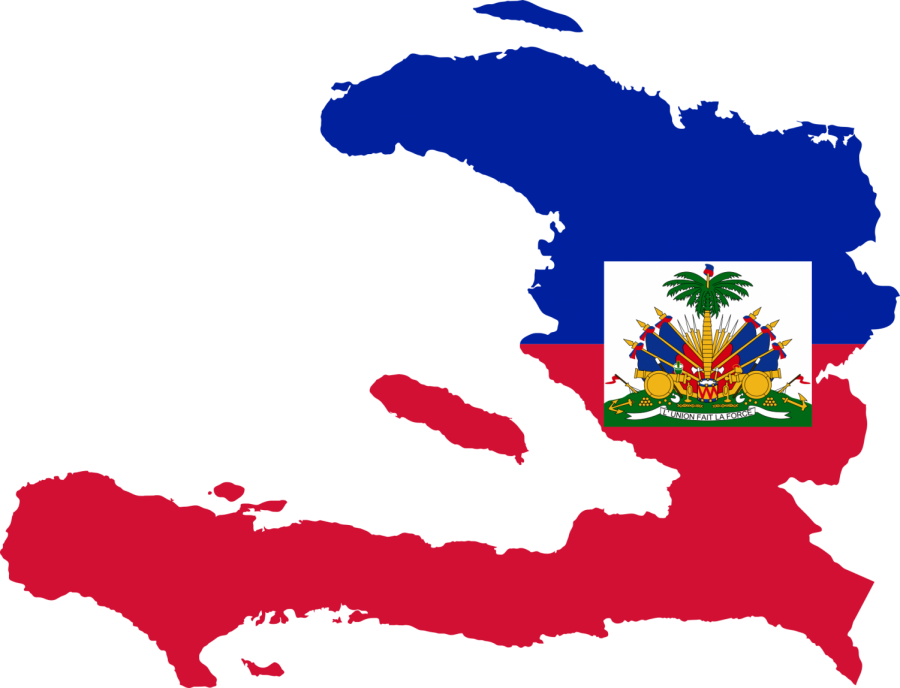The Curse of Imperialism on Haiti
December 14, 2021
In late September 2021, images of the U.S. Border Patrol agents on horses surfaced to national media attention. Seen on horseback, the photos show officers attempting to apprehend Haitian migrants and brandishing horse reins in a manner that has the nation asking, “Are Black people being whipped at the border?” These photos have been nothing short of a nightmare for the Biden administration.
Much of the outrage is highlighting that the unfair treatment of Haitians is due to systemic racism and anti-blackness. Here’s what NAACP president Derrick Johnson had to say about it: “The humanitarian crisis happening under this administration on the southern border disgustingly mirrors some of the darkest moments in America’s history. If we were to close our eyes and this was occurring under the Trump administration, what would we do? The inhumane treatment of the Haitian refugees is utterly sickening.”
When asked about the crisis at the border, President Biden responded, “It’s horrible what you saw. To see people like they did, with horses, running them over, people being strapped, it’s outrageous…. I promise you, those people will pay. There is an investigation underway right now and there will be consequences.”
Similarly, Vice President Harris was also questioned about the situation to which she compared the treatment of the Haitians at the border to the violence against indigenous people and African Americans during slavery. Despite the Biden administration’s comments, the crisis at the border continues.
It’s clear that President Biden needs to take a stand on how his immigration politics will be remembered. Perhaps he already has. According to a recent NY times article thousands of Haitians have already been deported, with 4 scheduled flights a day beginning September 4th. More than 6,000 Haitians have been deported between September 19 and October 1.
Biden, despite making promises to end the Trump immigration policy era, has been rapidly deporting Haitian immigrants using policy from the era he’s claimed he wants to end. Title 42, a policy implemented by the Trump administration that allows rapid deportations, essentially stripping migrants of asylum-seeking rights, under the pandemic claiming it is a public health hazard. The American Civil Liberties Union (ACLU) successfully sued the government (government is currently appealing), demanding the end of Title 42.
Haiti, a nation that has been through recent turmoil, including a presidential assassination and a severe earthquake which displaced countless Haitian citizens. Fear of violence from organized crime has also drawn Haitians to leave their home country and seek asylum with the United States. However, despite the disasters taking place in Haiti, not all migrants seen at the border are coming directly from Haiti. Many are coming from South American nations, having lived there for some time. With the promises of a new leaf in immigration politics, it is no wonder there has been a spike in migrants seeking to enter the nation.
The United States has long been involved in Haiti’s affairs. After the assassination of their president in 1915, President Woodrow Wilson sent the U.S. Marines to restore order and stability. This occupation lasted until 1934. Since 1973, the United States has been Haiti’s biggest donor.
In fact, since 2004 the United States has given around $600 million to Haiti for improving governance, security, the rule of law, economic recovery, and critical human needs. Furthermore, the United States has exercised its influence on Haitian politics since 1994 with the goal of encouraging democracy.
While it would be hopeful to believe that this involvement has helped Haiti for the better, this might not be the case. President Bill Clinton once demanded that Haiti drop tariffs on the importation of subsidized U.S. rice. This action created a negative effect on northern Haitian farmers. The U.S. aid provided to the country was given based on U.S. policies and not on Haiti’s needs.
On October 22, 2012, Secretary State Hillary Clinton gave a speech at the opening of the Caracol industrial park – a project that destroyed the natural and archeological potential of that area. And then in 2011, WikiLeaks revealed that President Barack Obama’s administration fought to keep Haitian wages at 31 cents instead of the proposed 61 cents that the Haitian government had passed.
All in all, U.S. intervention in Haiti has been a controversial issue for years in past and for years to come. For years the United States has debatably helped the situation in Haiti become worse and worse. Now, as millions seek asylum from the problem the United States has helped create, the U.S. has turned them away and abused their power once again. It is clear that change needs to be brought to the Border Patrol and that a better response is required from President Biden.













